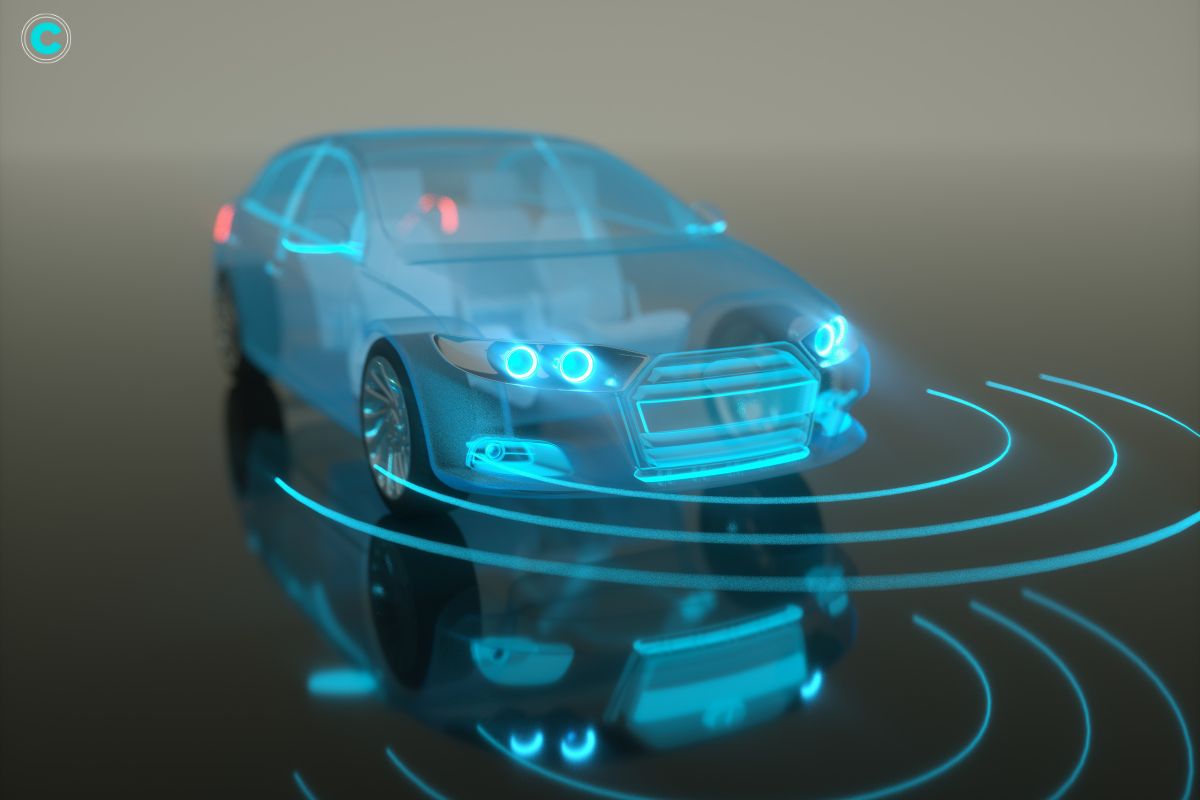Autonomous driving is no longer a futuristic concept but a rapidly advancing reality. The United States is at the forefront of this technological revolution, with numerous companies pushing the boundaries of what is possible. From reducing traffic accidents to enhancing mobility for all, autonomous driving holds tremendous potential. Let’s dive into the top 10 autonomous driving companies in the USA and explore how they are shaping the future of transportation.
The Rise of Autonomous Driving Technology
Significant milestones have marked the journey of autonomous driving technology. From the early experiments with self-driving cars in the 1980s to the sophisticated AI-driven vehicles we see today, the evolution has been nothing short of remarkable. Advances in sensors, computing power, and artificial intelligence have propelled this industry forward, making self-driving cars a tangible reality.
Why the USA is a Hub for Autonomous Driving Companies
The USA has become a central hub for autonomous driving companies due to several factors:
- Technological Innovation: The USA is home to Silicon Valley and other tech hubs that foster innovation.
- Government Support and Regulations: Progressive regulations and government initiatives have created a conducive environment for testing and developing autonomous vehicles.
- Market Demand: There is a high demand for autonomous driving solutions in the USA, driven by a desire for safer and more efficient transportation.
Top 10 Autonomous Driving Companies in the USA
1. Waymo
History and Background
Waymo, a subsidiary of Alphabet Inc., started as the Google Self-Driving Car Project in 2009. It has grown into a leader in autonomous driving technology.
Key Achievements and Technologies
Waymo has developed a robust autonomous driving system with millions of miles of real-world testing. Its Waymo Driver technology integrates advanced LiDAR, radar, and camera systems.
Future Prospects
Waymo is focused on expanding its autonomous ride-hailing service, Waymo One, and partnering with automakers to integrate its technology into more vehicles.
2. Tesla
History and Background
Tesla, led by Elon Musk, has been a pioneer in electric vehicles and autonomous driving technology since its founding in 2003.
Key Achievements and Technologies

Tesla’s Autopilot and Full Self-Driving (FSD) capabilities are well-known. The company uses a vision-based approach with neural networks to process data from cameras and sensors.
Future Prospects
Tesla aims to achieve full autonomy with its FSD system and expand its fleet of autonomous vehicles globally.
3. Cruise (GM)
Cruise, a subsidiary of General Motors, was founded in 2013 and has been a significant player in autonomous driving.
Key Achievements and Technologies
Cruise has developed an all-electric, self-driving car called the Cruise Origin. The company focuses on creating a ride-hailing service using autonomous vehicles.
Future Prospects
Cruise plans to launch its ride-hailing service in major cities and continue innovating in autonomous vehicle technology.
4. Aurora
History and Background
Aurora was founded in 2017 by experts from Google, Tesla, and Uber. The company is dedicated to developing the Aurora Driver, a self-driving system for various vehicles.
Key Achievements and Technologies
Aurora has made significant strides in autonomous trucking and has partnerships with major logistics companies.
Future Prospects
Aurora aims to revolutionize the logistics industry with autonomous trucks and expand its technology to passenger vehicles.
5. Argo AI
History and Background
Argo AI, founded in 2016, has received substantial investments from Ford and Volkswagen. The company focuses on creating a reliable self-driving system.
Key Achievements and Technologies
Argo AI has developed a comprehensive autonomous driving platform with extensive testing in urban environments.
Future Prospects
Argo AI plans to launch autonomous ride-hailing and delivery services in multiple cities.
6. Zoox (Amazon)
History and Background

Zoox, acquired by Amazon in 2020, is known for its innovative approach to autonomous driving and vehicle design.
Key Achievements and Technologies
Zoox has created a unique bi-directional vehicle designed specifically for autonomous driving, enhancing safety and efficiency.
Future Prospects
Zoox aims to revolutionize urban mobility with its purpose-built autonomous vehicles and plans to launch ride-hailing services.
7. Nuro
History and Background
Nuro, founded in 2016, focuses on autonomous delivery solutions. The company has received significant investment from SoftBank.
Key Achievements and Technologies
Nuro’s autonomous delivery vehicles are designed for local goods transportation, offering a unique solution for last-mile delivery.
Future Prospects
Nuro plans to expand its delivery services and explore new markets for its autonomous technology.
8. Motional
History and Background
Motional, a joint venture between Aptiv and Hyundai, was established in 2020. The company is committed to developing safe and reliable autonomous vehicles.
Key Achievements and Technologies
Motional has achieved significant milestones in autonomous ride-hailing and has partnerships with Lyft for deploying self-driving cars.
Future Prospects
Motional aims to enhance its autonomous ride-hailing services and expand its presence in the global market.
9. Aptiv
History and Background
Aptiv, formerly Delphi Automotive, has been a key player in automotive technology for decades. The company focuses on advanced safety and autonomous driving systems.
Key Achievements and Technologies
Aptiv has developed sophisticated driver-assistance systems and has been a pioneer in integrating autonomous technology into vehicles.
Future Prospects
Aptiv plans to continue innovating in autonomous driving and collaborate with other companies to bring self-driving technology to more markets.
10. Luminar Technologies
History and Background
Luminar Technologies, founded in 2012, specializes in LiDAR technology, crucial for autonomous driving systems.
Key Achievements and Technologies
Luminar’s LiDAR sensors offer high-resolution and long-range capabilities, enhancing the safety and performance of autonomous vehicles.
Future Prospects
Luminar aims to expand its LiDAR technology adoption across the autonomous driving industry and collaborate with major automakers.
Technological Innovations Driving the Industry
Several technological innovations propel the autonomous driving industry:
- LiDAR and Sensor Technology: Provides accurate mapping and object detection.
- Artificial Intelligence and Machine Learning: Powers the decision-making processes of autonomous vehicles.
- Vehicle-to-Everything (V2X) Communication: Enhances connectivity and safety by enabling vehicles to communicate with each other and infrastructure.
Challenges Facing Autonomous Driving Companies

Despite the advancements, autonomous driving companies face several challenges:
- Regulatory Hurdles: Navigating varying regulations across states and countries.
- Safety Concerns: Ensuring the safety of autonomous vehicles in diverse conditions.
- Public Perception and Trust: Building trust and acceptance among the public.
The Future of Autonomous Driving
The future of autonomous driving holds immense potential:
- Potential Societal Impacts: Improved road safety, reduced traffic congestion, and enhanced mobility for all.
- Economic Benefits: Increased efficiency and reduced costs in transportation and logistics.
- Predictions for the Next Decade: Widespread adoption of autonomous vehicles and integration into daily life.
FAQs
1. What is the most advanced autonomous driving company?
Waymo is often considered the most advanced due to its extensive testing and technological innovations.
2. How do autonomous driving companies ensure safety?
They use a combination of sensors, AI, rigorous testing, and adherence to safety regulations to ensure the safety of autonomous vehicles.
3. What are the main challenges for self-driving cars?
The main challenges include regulatory hurdles, safety concerns, and public trust.
4. How will autonomous vehicles impact the job market?
While some jobs may be displaced, new opportunities in technology development, maintenance, and other sectors will emerge.
5. When will fully autonomous cars be available to the public?
While some autonomous features are available now, fully autonomous cars for the public are expected to be more widely available within the next decade.
Conclusion
The top 10 autonomous driving companies in the USA are leading the charge in transforming transportation. Their innovative technologies and relentless pursuit of safety and efficiency are paving the way for a future where autonomous vehicles are a common sight on our roads.






